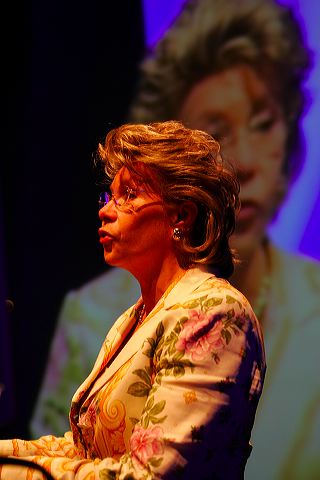Politicians love to stifle free expression. Congress recently increased indecency fines on broadcasters ten-fold, and now some stations are wary to air documentaries that contain salty language. Some in Congress want to extend those rules to cable and satellite platforms, despite that pesky First Amendment. And the Internet remains a favorite target, most recently social-networking sites.
Totalitarian states remain the poster children of such acts. But other democracies around the world are doing their level best to give U.S. politicians a run for their money. Several examples of this from around the globe are featured in "Do's and Dont's for Global Media Regulation: Empowering Expression, Consumers and Innovation," a Progress on Point that PFF has published today. It focuses on Canada, Australia and Europe. In that sense it builds on papers I've written on the Television without Frontiers Initiative (here and here) backed by European Commissioner Viviane Reding (shown below in a nice two-fer shot).

The European Commission Committee on Culture is expected this month to issue a report on TVwF, so despite growing opposition to it among business leaders in Europe it appears not to be going away. Thus, my paper proposes five reasonable Do's and Don'ts that policymakers in the US and abroad should follow to ensure free expression, innovation and consumer benefits:
1. Do enforce existing child-protection laws.
2. Don't distinguish between types of content delivery.
3. Do harmonize by deregulating down.
4. Don't discourage migration of content.
5. Do support intellectual property rights.
These five principles will help policymakers avoid needlessly regulating new technologies, will avoid skewing the market by favoring one technology over another, but will not prevent prosecution of those engaging in criminal behavior. If applied in Canada, Australia, Europe or the US, everyone will win.
